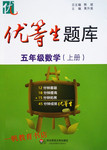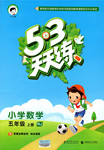题目内容
On Radio Beijing everyone needs _______ English well.
- A.speaking
- B.speak
- C.spoken
- D.to spoken
D
本题主要考查need的用法,need作情态动词无人称或数的变化,后接动词原形,多用于否定句和疑问句中;need 作为行为动词有人称和数的变化,后面可接名词、代词、动名词及带to 的动词不定式,根据题意故选D
本题主要考查need的用法,need作情态动词无人称或数的变化,后接动词原形,多用于否定句和疑问句中;need 作为行为动词有人称和数的变化,后面可接名词、代词、动名词及带to 的动词不定式,根据题意故选D

练习册系列答案
 优等生题库系列答案
优等生题库系列答案 53天天练系列答案
53天天练系列答案
相关题目